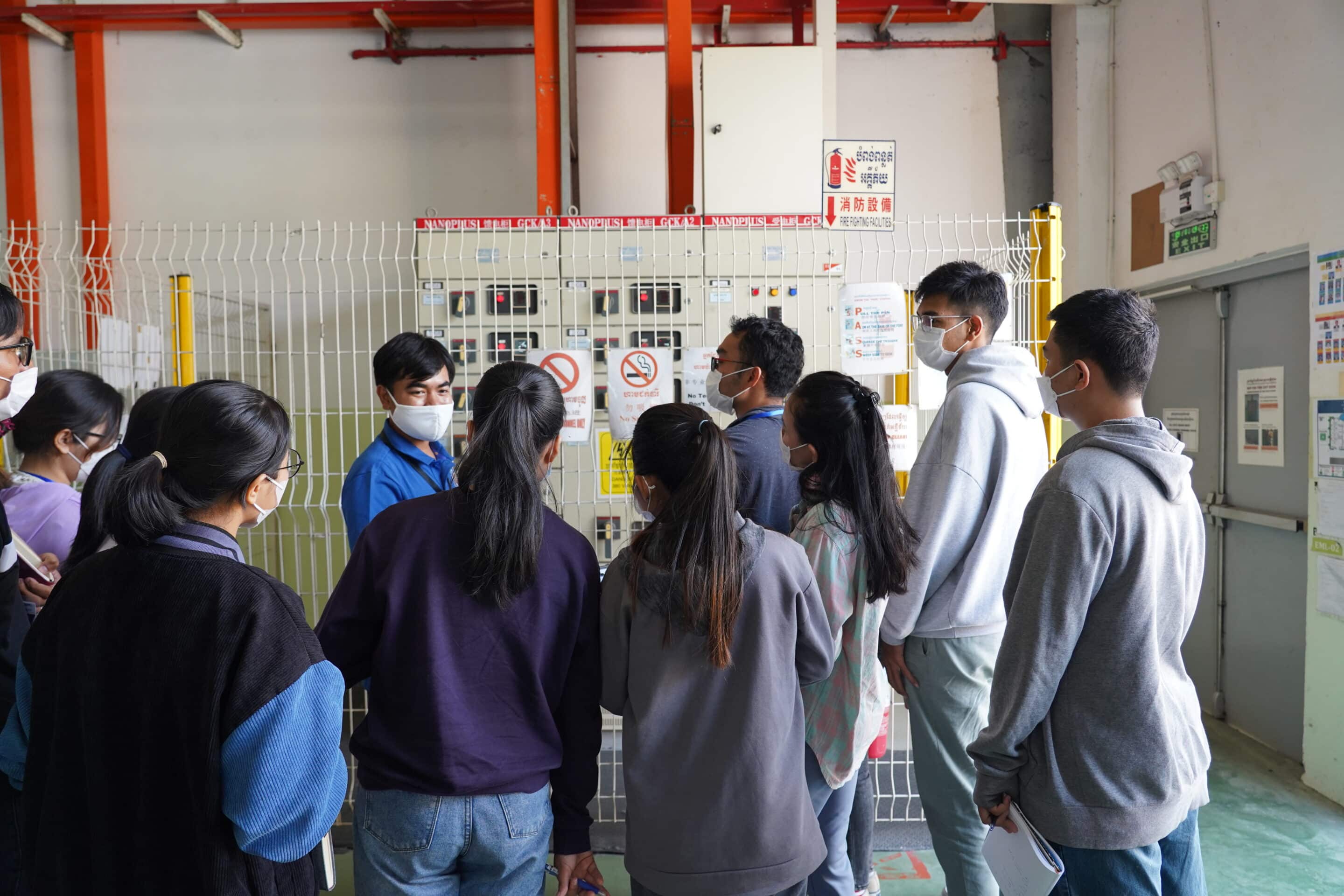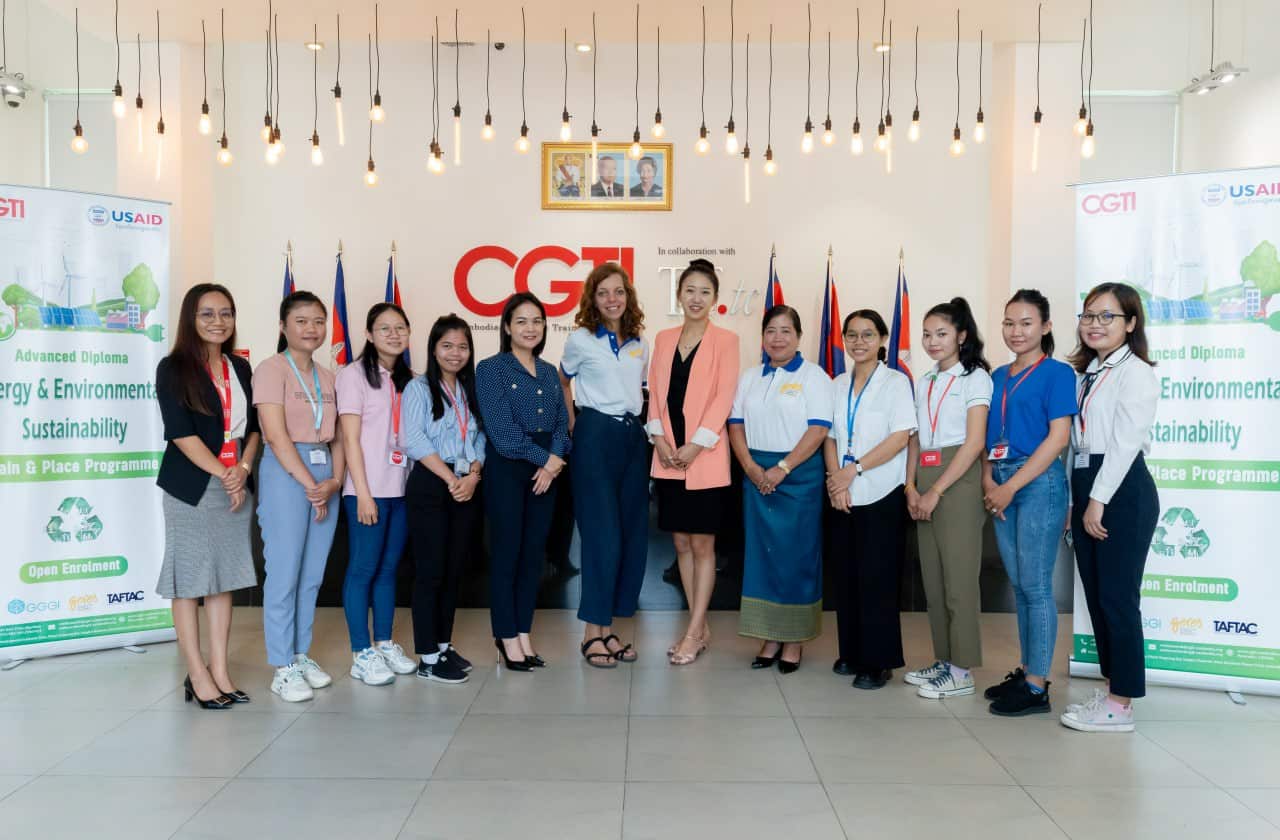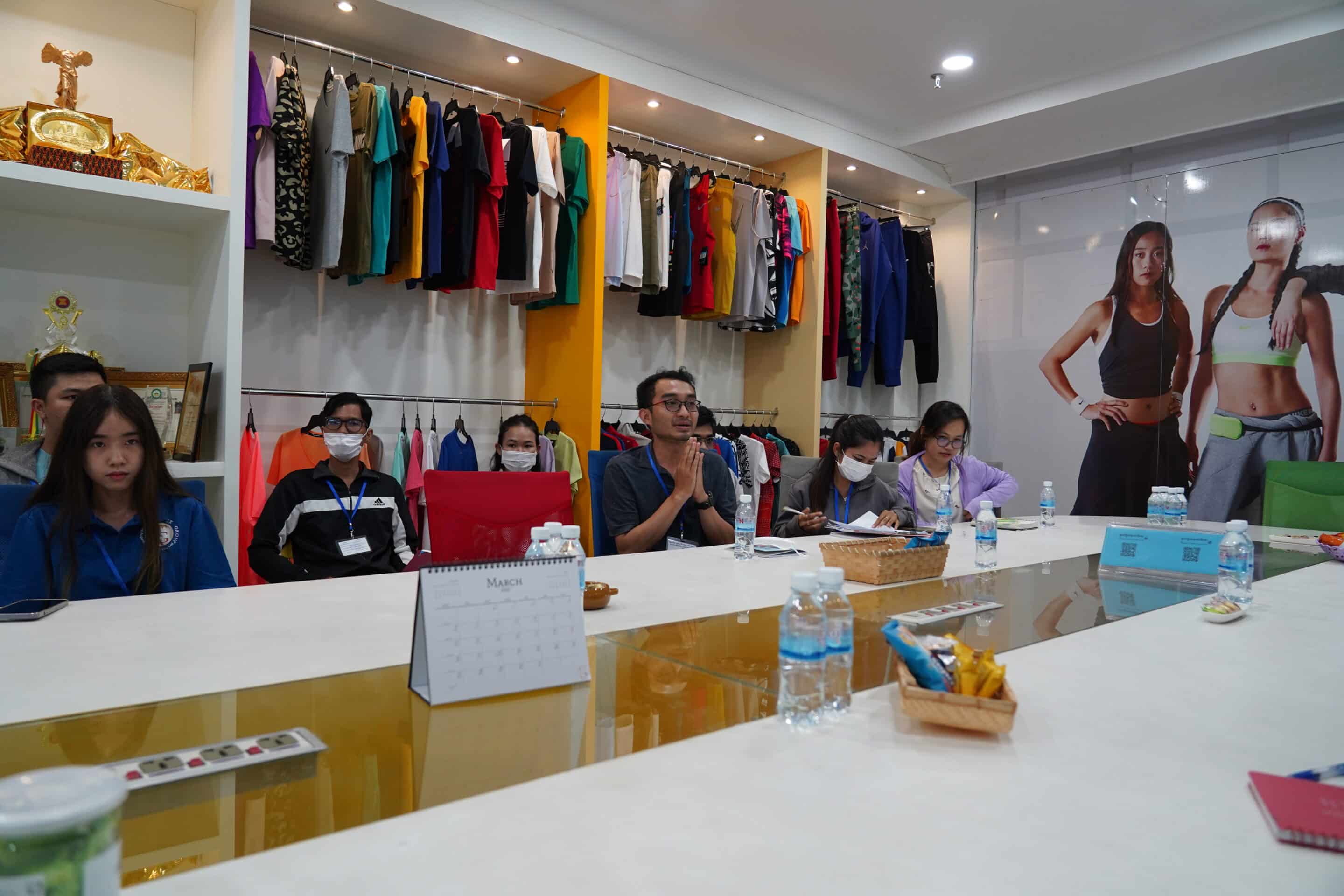Training tomorrow’s experts in garment industry in Cambodia, a look back at the USAID diploma course
Since 2016, Geres has been developing projects in Cambodia to support the garment industry in its environmental and energy transition.
The aim is to support manufacturers and their employees towards better consideration of the environment in their daily practices.
Indeed, the garment industry is a key pillar of the Cambodian economy. In 2019, before the COVID-19 pandemic, the industry employed 800,000 workers, mainly women, and accounted for 65% of total export earnings and 15% of Cambodia’s GDP. The pandemic severely affected the sector, prompting international brands to re-evaluate their sourcing strategies, with increased focus on environmental and energy management as well as manufacturing practices.
To remain competitive, factories in Cambodia need national experts to develop and implement appropriate environmental strategies. To maintain effective collaboration with brands sourcing from Cambodia, local factories are looking to upgrade the skills of their current employees and employ new staff trained to monitor and report on brands’ environmental requirements and consumer expectations.
Technical and vocational training plays a crucial role in the garment industry’s transition to cleaner and more efficient practices. That’s why Geres, alongside its partners, has been working on the development of a diploma course to strengthen the expertise of factories and meet international environmental demand.
.

Training to address ecological and environmental challenges in the garment industry
The consortium, comprising Geres, GGGI (Global Green Growth Institute), CGTI (Cambodia Garment Training Center) and TAFTAC (Textile, Apparel, Footwear, Travel and goods Association), has collaborated with USAID to develop the “Advanced Diploma in Energy and Environmental Efficiency” to train future environmental and energy efficiency managers in Cambodia.
The aim of the program is to train students in environmental issues affecting factories, including the management of energy, water, chemicals and waste, as well as environmental standards. The programs offered were intentionally broad in scope, to enable everyone to apply this new environmental and energy knowledge within their respective professions.
The partner organizations in the project developed the courses contents related to their specialties, while CGTI orchestrated and deployed the entire program. Geres, for its part, developed the content of the Energy Management and Water Management modules, representing 2 months of courses of the total 6-month course duration. .

A program tailored to students
A detailed analysis of training needs conducted by Geres with the stakeholders in the sector showed that offering professional training to young graduates alone was insufficient to cover all needs; there was also a strong demand for training the existing teams.
The diploma was therefore developed in two formats: for fresh graduates, the training consisted of an apprenticeship including 6-month full time at the training organization, followed by 5 months in the field. For professionals already in their positions, the program was adapted to an alternating format, with 3 days of online training, and 3 days in the factory.
CGTI (Cambodian Garment Training Institute) was responsible for deploying the pilot and conducting the training. Thanks to their efforts, the training program has been accredited by the government, and over 50 people have benefited from this pilot training, including 11 young graduates and 47 garment factory employees. This program is now a valuable addition to their training curriculum, ensuring its sustainability beyond the pilot project.
This pilot is being implemented under the US Support for Economic Growth in Asia (US-SEGA) Cambodia Workforce Development Activity whose aim is to mitigate the economic impacts of the COVID-19 pandemic by ensuring inclusive and equitable economic recovery in Cambodia.

WOULD YOU LIKE TO TAKE ACTION
AND SUPPORT WHAT WE DO?
Tell us who you are and find your means of action.
CITIZENS
Because Climate Solidarity is a challenge we face collectively, Geres gives you the possibility to make a difference.
TAKE ACTION AS A CITIZEN
PRIVATE SECTOR
As a business executive, an employee or a customer, you have the power to take action in your everyday life.
LOCAL AND INSTITUTIONAL ACTORS
Support our actions in France and internationally and become an agent of change at our side.
FOUNDATIONS
By supporting Geres, you contribute to the implementation of innovative and concrete actions.
